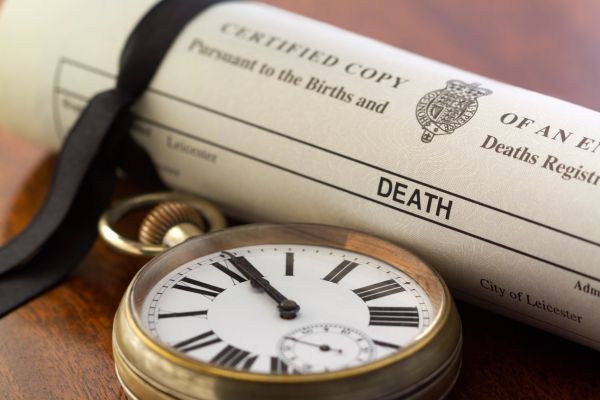Losing someone you love because of someone else’s mistake or negligence—it’s a pain that hits deep. And while no amount of money can truly make that right, a wrongful death claim can help ease some of the financial burden and bring a little sense of justice. But here’s the thing: there’s a time limit for a wrongful death claim, and if you miss it, you could lose your right to file altogether. Sounds harsh, right? That’s why it’s so important to understand how this time limit works and what you can do about it.
What Exactly Is a Wrongful Death Claim?
Before we jump into the whole timing issue, let’s quickly break down what a wrongful death claim actually is. Basically, it’s a type of lawsuit that family members or the estate of a deceased person can file when someone’s negligence or intentional act causes that person’s death. Think of cases involving car accidents, medical malpractice, workplace accidents, or even defective products.
It’s not just about pointing fingers—it’s about accountability. And let’s be real, if your loved one died because of someone else’s carelessness, you deserve the chance to seek justice and compensation for the emotional and financial fallout that comes with it.
The Clock Starts Ticking: Understanding the Time Limit for Wrongful Death Claim
Now, here’s where things get serious. Every state in the U.S. has its own statute of limitations—basically, a legal deadline—for filing a wrongful death claim. This “time limit for wrongful death claim” determines how long you have to take legal action.
In most states, this time frame ranges from one to three years from the date of death. Some states might give you a little longer, but others are stricter. Once that deadline passes, your claim can be dismissed, no matter how valid it might be. Harsh? Yeah. But that’s how the law works—it pushes people to act quickly so evidence and witness memories don’t fade over time.
Why the Time Limit Exists in the First Place
You might be wondering, “Why should there even be a time limit for a wrongful death claim? Isn’t justice supposed to be timeless?” Fair question.
The main reason these deadlines exist is to keep the legal system fair and efficient. Over time, witnesses forget details, evidence can disappear, and circumstances can change. The time limit ensures that claims are made while the facts are still fresh. It also gives potential defendants some peace of mind that they won’t be sued decades later for something that happened long ago.
So, yeah, it’s about balance—protecting both the rights of grieving families and the fairness of the legal process.
When Does the Countdown Begin?
This part can get a little tricky. The countdown—meaning when the clock starts on the time limit for a wrongful death claim—usually begins on the date of death.
However, there are exceptions. For example, if the death wasn’t immediately linked to negligence, or the cause wasn’t discovered until later, some states apply what’s called the “discovery rule.” That means the time limit starts from the day you discovered (or reasonably should have discovered) that negligence or wrongdoing caused the death.
Say a loved one died after a surgery, but months later, you find out that a surgical error was to blame. The “discovery rule” might allow the countdown to start from the date you discovered that fact—not the day of the death itself. This rule can make a big difference in whether a case can move forward or not.
Special Circumstances That Can Extend or Shorten the Time Limit
Life doesn’t always fit neatly into legal boxes, right? That’s why there are a few situations that can change how the time limit for wrongful death claim applies:
If the Defendant Leaves the State:
If the person or company responsible moves out of state, the clock might pause until they return.
If the Claim Involves a Government Entity:
When suing a government agency (like a city or state hospital), you typically have to file a notice of claim first—and the deadline for that can be much shorter, sometimes just a few months.
If the Deceased Was a Minor or Mentally Incapacitated:
Certain states may allow more flexibility if the victim was a minor or unable to make decisions at the time of the negligent act.
If Fraud Was Involved:
If someone intentionally hid their role in the death or falsified records, the statute of limitations might be extended once the fraud is discovered.
These exceptions can be lifesavers (legally speaking), but you’ll need a lawyer to help figure out if any apply to your situation.
The Importance of Acting Quickly
Here’s the thing—time flies, especially when you’re grieving. It’s easy to think, “I’ll deal with this later,” but later can turn into too late before you know it. Acting within the time limit for a wrongful death claim is crucial not only because of the law but also because gathering evidence takes time.
Documents need to be reviewed, witnesses need to be interviewed, and experts might be brought in to strengthen your case. The earlier you start, the stronger your claim can be.
Even if you’re not sure whether you want to file, talking to an attorney early on can at least help you understand your options. Think of it as protecting your future self from regret.
How to File a Wrongful Death Claim (Without Getting Overwhelmed)
Filing a wrongful death claim can sound intimidating—and honestly, it is. But it’s not impossible. Usually, the process starts with determining who can file the claim. This could be the deceased person’s spouse, children, parents, or sometimes the estate’s representative, depending on state laws.
Once that’s clear, your lawyer will help gather all the evidence—medical records, accident reports, witness statements, and more—to show that someone’s negligence caused the death. From there, negotiations may start with the responsible party’s insurance company. If no settlement is reached, the case might go to court.
It’s a process, but having an experienced wrongful death attorney can make all the difference. They’ll handle the deadlines, filings, and legal headaches while you focus on healing.
What Happens If You Miss the Deadline?
Okay, let’s be blunt—if you miss the time limit for a wrongful death claim, your case might be dead in the water. Courts almost always dismiss claims filed after the statute of limitations expires. There are very few exceptions, and they’re not guaranteed.
That’s why waiting too long can cost you everything—justice, compensation, and closure. If you’re even thinking that negligence may have played a role in your loved one’s death, it’s worth consulting a lawyer immediately. Even just understanding your timeline can give you peace of mind.
Wrapping It All Up
At the end of the day, the time limit for a wrongful death claim isn’t something to take lightly. It’s the invisible countdown that can decide whether you get your day in court or not.
So, don’t let the clock run out. Grieve, yes. Take your time to process. But when it comes to legal action, don’t delay too long. Whether your case involves medical malpractice, an accident, or corporate negligence, knowing your state’s deadline—and acting within it—is the key to keeping your rights intact.
The loss you’ve suffered is already heavy enough. Don’t let missing a deadline add another layer of regret. If there’s even a chance someone’s carelessness caused your loved one’s death, talk to a wrongful death lawyer as soon as you can. Time may heal, but in the eyes of the law, time also decides—and once it’s gone, there’s no getting it back.



